2017 BUDGET UNVEILED
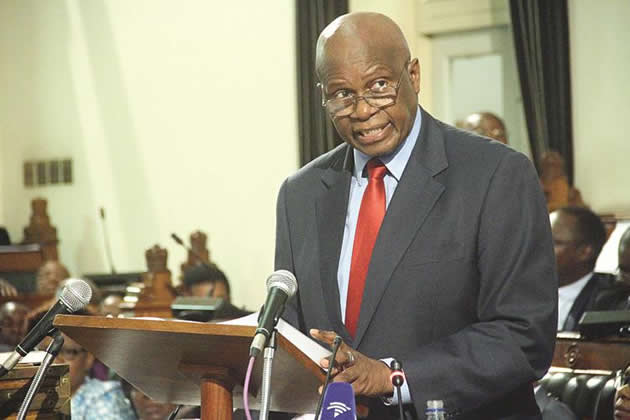
Happiness Zengeni and Prosper Ndlovu
The Government plans to boost local manufacturing industries and small businesses through pro-production interventions as evidenced by the 2017 National Budget meant to instil greater investor confidence and propel the economy to recovery amid fiscal headwinds.
The Government also seeks to cushion the general public against the high cost of transaction on mobile banking by exempting companies from Value Added Tax and has frozen increases of prices and fees charged by public enterprises, including electricity, rates and water.
Presenting the $4,1 billion 2017 budget in Parliament yesterday Finance and Economic Development Minister Patrick Chinamasa stressed the need to stimulate domestic production and promote exports which he said was the panacea to economic growth.
Cde Chinamasa unveiled a raft of supply side interventions geared towards enhancing production across all sectors of the economy in the face of limited fiscal space.
The budget was presented under the theme of “Pushing Production Frontiers Across All Sectors of the Economy”.
Minister Chinamasa acknowledged that Zimbabwe was in an unsustainable economic position characterised by low production, import dependency, low savings, low incomes, high formal unemployment as well as liquidity and cash challenges.
As a result, revenue collections have continued to shrink with the 2016 position estimated to close at $3,52 billion from a mid-year revision of $3,69 billion. This is against $4,6 billion expenditures which included items which were outside the vote appropriations initially made at the last budget. Some of the items relate to drought-related grain procurement, $253.5 million; Bonus payments for 2015, $177.8 million; December 2015 salary payment arrears, $138 million; and debt servicing amounting to $512.6 million.
For 2017, Minister Chinamasa said some of the spill over effects of the prevailing economic challenges will constrain revenue collections in the first part of the year. As a result the Government is projecting another budget imbalance for the next year, though much smaller, at $400 million from revenue collections of $3,7 billion and expenditure of $4,1 billion.
“This, therefore, reflects a (new) path towards reducing the budget imbalance through rationalisation and fiscal consolidation measures.
“Mr Speaker Sir, Government should move away from a situation where the perception and expectation that Treasury Bills have become a surrogate currency to meet expenditures and deficit financing,” Minister Chinamasa said. Government has been financing its deficit through the issuance of TBs now estimated at above $2,5 billion.
“The fundamental challenge remains that of under-production, entirely across all sectors of the economy. The major challenge for the 2017 National Budget is, therefore, taking the lead in ‘walking the talk’ with regards to implementing critical reforms.”
Treasury is set to increase customs duty on selected fabric, in order to level the playing field for the local industry. Clothing and furniture manufacturers will, however, continue to access fabrics duty free, under the clothing manufacturers rebate. Furthermore, it is proposed to avail additional raw materials under a rebate of duty on selected fabrics. This will provide a boost to the textile industry which is currently operating at between 30-35 percent.
The minister also introduced 40 percent excise duty on paraffin to stem illegal blending with diesel by fuel operators.
Further measures to boost revenues include the licencing of additional suppliers to supply fiscalised devices. “Currently, 10 companies are licenced to supply fiscalised devices, of which four are no longer operational. This has constrained the supply of fiscalised devices, thereby undermining progress of the programme.”
The minister also said Government will tighten existing legislative loopholes relating to the taxation of intangibles, general administration and management fees between associated companies, dividends arising from disallowed interest expenses and a permanent establishment.
Standard rating of meat products, rice, margarine and potatoes will be introduced while the debt redemption levy on petrol by 1 cent per litre, with effect from January 1, 2017.
The minister also extended VAT zero rating to the supply of pipeline transportation, storage and handling services for purposes of delivery of fuel through the pipeline, with effect from January 1.
For small to medium enterprises, Minister Chinamasa said Government would eliminate double taxation on presumptive taxes payable under informal traders’ tax and make a downward review on the taxes.
“I have already identified inadequate working capital as one of the hindrances to the growth of SMEs.”
“It is, therefore, proposed to ring fence revenue generated from presumptive taxes towards capitalisation of the Small and Medium Enterprises Development Corporation (SMEDCO) for on-lending to SMEs.”
Minister Chinamasa also said in order for efforts to formalise SMEs and enhance taxpayer compliance, particularly with regards to registration, filing of tax returns and payment of tax, the Zimbabwe Revenue Authority will intensify training programmes in collaboration with the responsible Ministry.
Minister Chinamasa projected the economy to grow by 1,7 percent next year from the estimated 0.6 percent for 2016.
In line with Zim-Asset, the Finance Minister said the 2017 budget was anchored on providing an enabling environment for sustainable economic empowerment and social transformation.
In view of the normal to above normal rainfall forecasts in the 2016/17 season, Minister Chinamasa said agriculture was projected to grow by 12 percent driven by higher output from major crops such as maize, cotton and tobacco, as well as milk production. The last season was a failure due to El-Nino induced drought that forced the country to import grain to avert starvation.
Against the background of depressed commodity earnings, coupled with marginal output gains from minerals such as gold and chrome, the budget projected a modest mining growth of 0.9 percent in 2017. The minister pledged to review and standardise Rural District Council fees and charges and further review of Environmental Management Agency charges that affect mining operations.
He also extended the 15 percent platinum export tax waiver to December 2017 pending establishment of local refinery facilities.
The manufacturing sector is projected to grow by 0.3 percent next year despite inherent constraints such as antiquated equipment, capital, low aggregate demand, liquidity, high costs of utilities, and unfair competition from imports. The minister lauded the gains made since promulgation of Statutory Instrument 64 of 2016 in June this year, which has impacted positively on capacity utilisation.
Minister Chinamasa said the five percent export incentive under the bond notes strategy was expected to yield improved production results. As such the minister projected that marginal deflation was expected to continue in 2017 with prices responding to the anticipated improved level of domestic production.
Zimbabwe’s economy suffers relatively high import bill, which remains unsustainable at $5.35 billion in 2016 against exports of $3.365 billion, said Chinamasa.
He projected the tourism sector would record a 0.8 percent growth anchored on improved marketing and national branding of Zimbabwe as a competitive tourist destination. The drive will be supported by measures to remove barriers to free movement of tourists into and within the country, including the prevailing unconducive number of non-security/crime roadblocks on the country’s roads.
Minister Chinamasa said the coming fiscal year would prioritise finalising the outstanding components of the re-engagement process with international financial institutions. He reported that as at 31 October 2016, Zimbabwe’s public debt stood at $11.2 billion or 79 percent of GDP of which $7.5 billion, 53 percent of GDP, was external debt.
“Of the $7.5 billion external debt, $5.2 billion is in arrears, and this has resulted in deterioration of relations with major creditors, thereby inhibiting access to finance,” said the minister.
“The next step is resolving early in 2017 arrears to the other multilateral creditors, like the African Development Bank, $610 million; the World Bank, $1.16 billion; the European Investment Bank, $212 million and other multilateral institutions, as well as bilateral official creditors.”
He also said crucial attention would be directed to developing a robust infrastructure and utilities cluster, a critical arm of Zim-Asset, with a bias on energy, transport, housing development, information and communication technology as well as water and sanitation infrastructure as these are critical enablers in the development of the economy.
Minister Chinamasa emphasised the need to embrace e-governance for improved service delivery as well as adoption of joint venture approaches in major capital projects.
Through implementing the highlighted range of measures and reforms, the minister said the Government was committed to improving the domestic business and investment environment so as to restore confidence in the economy. He also said the budget would strengthen social safety nets in support of vulnerable groups, in line with the objectives of the Interim Poverty Reduction Strategy Paper (IPRSP) for 2016-2018.
“The budget, therefore, proposes corrective measures on fiscal and external imbalances to restore fiscal and debt sustainability, which provides a conducive environment for productive activities. This Budget marks a turning point towards a developing economy through fiscal consolidation and stimulation of production.

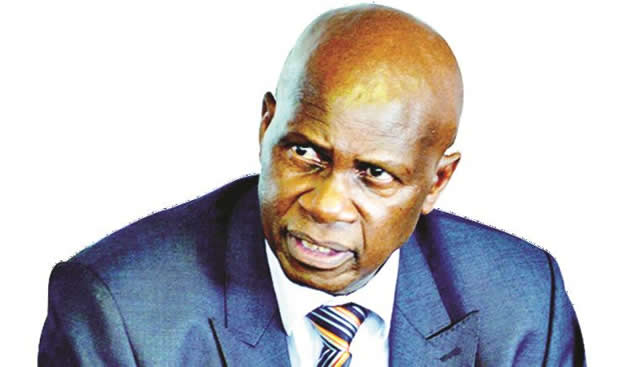
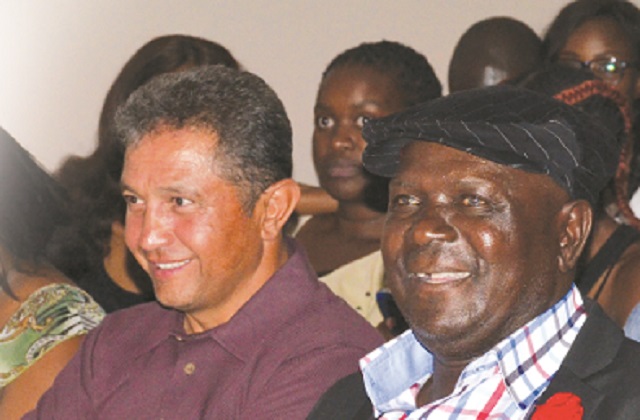
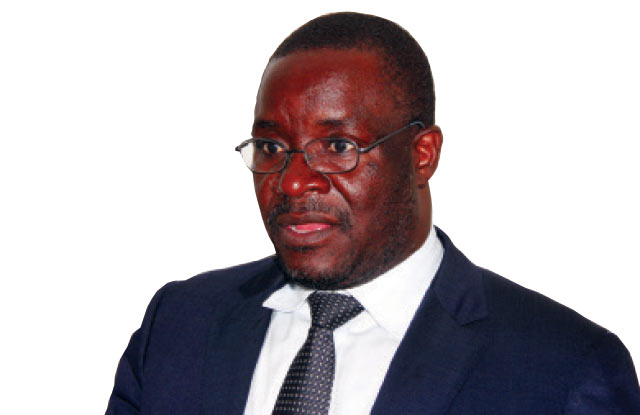

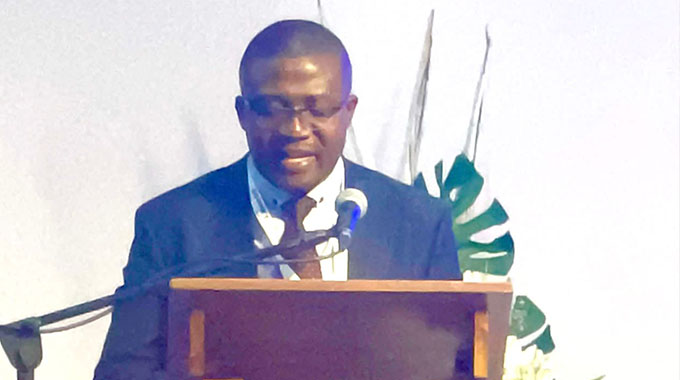
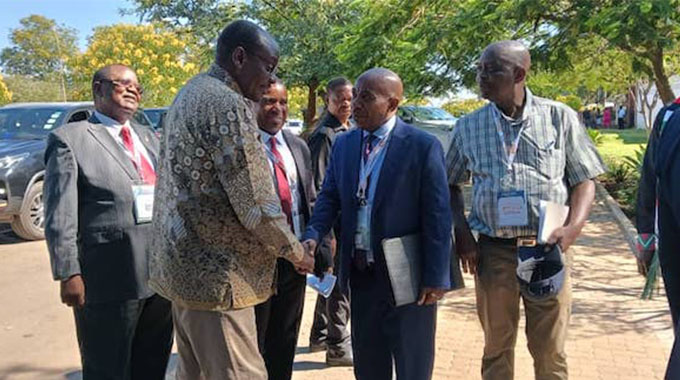





Comments